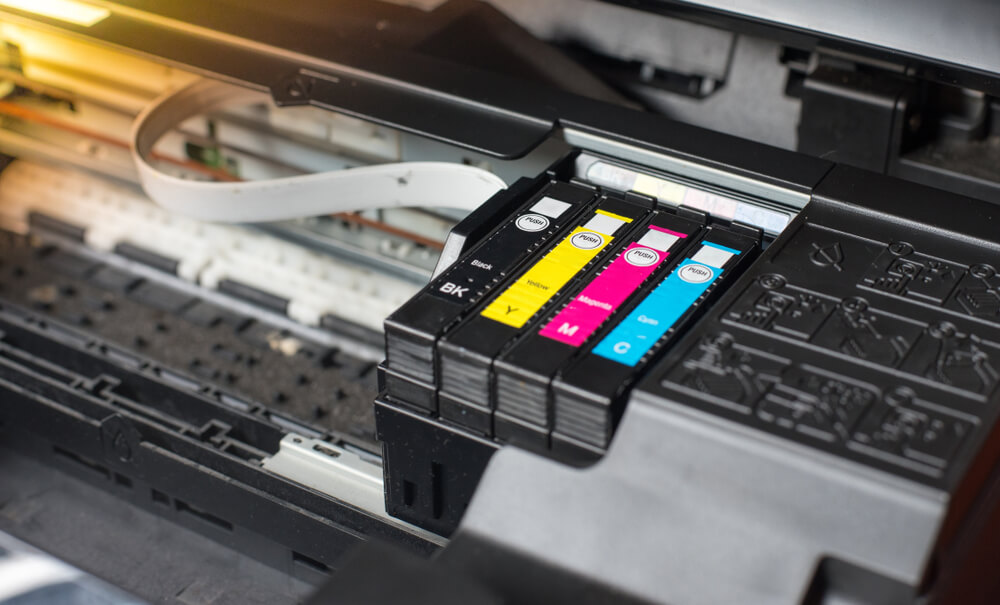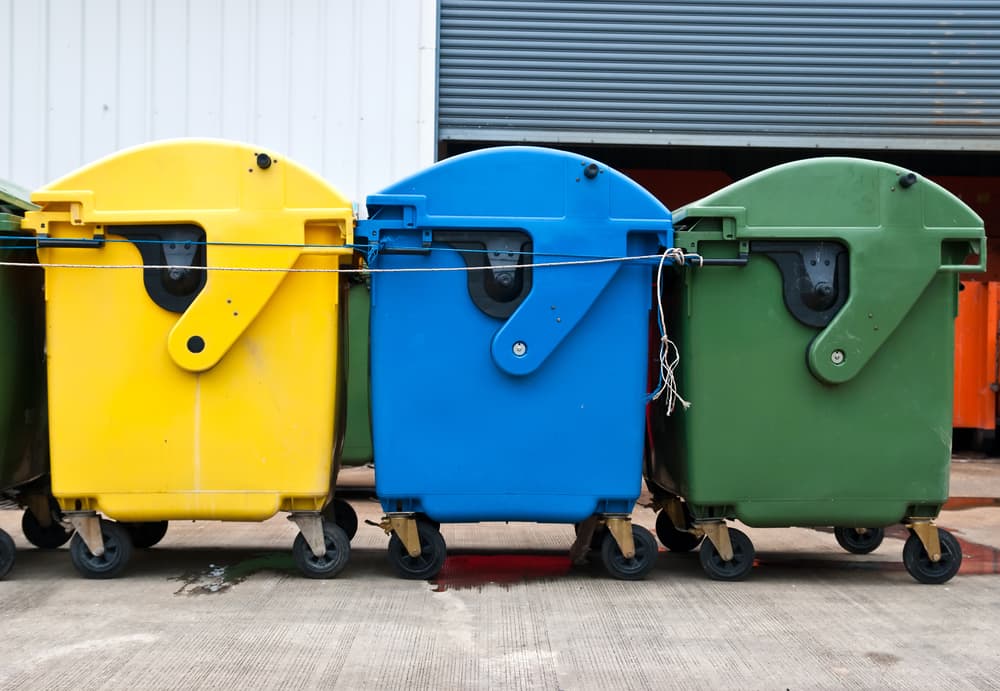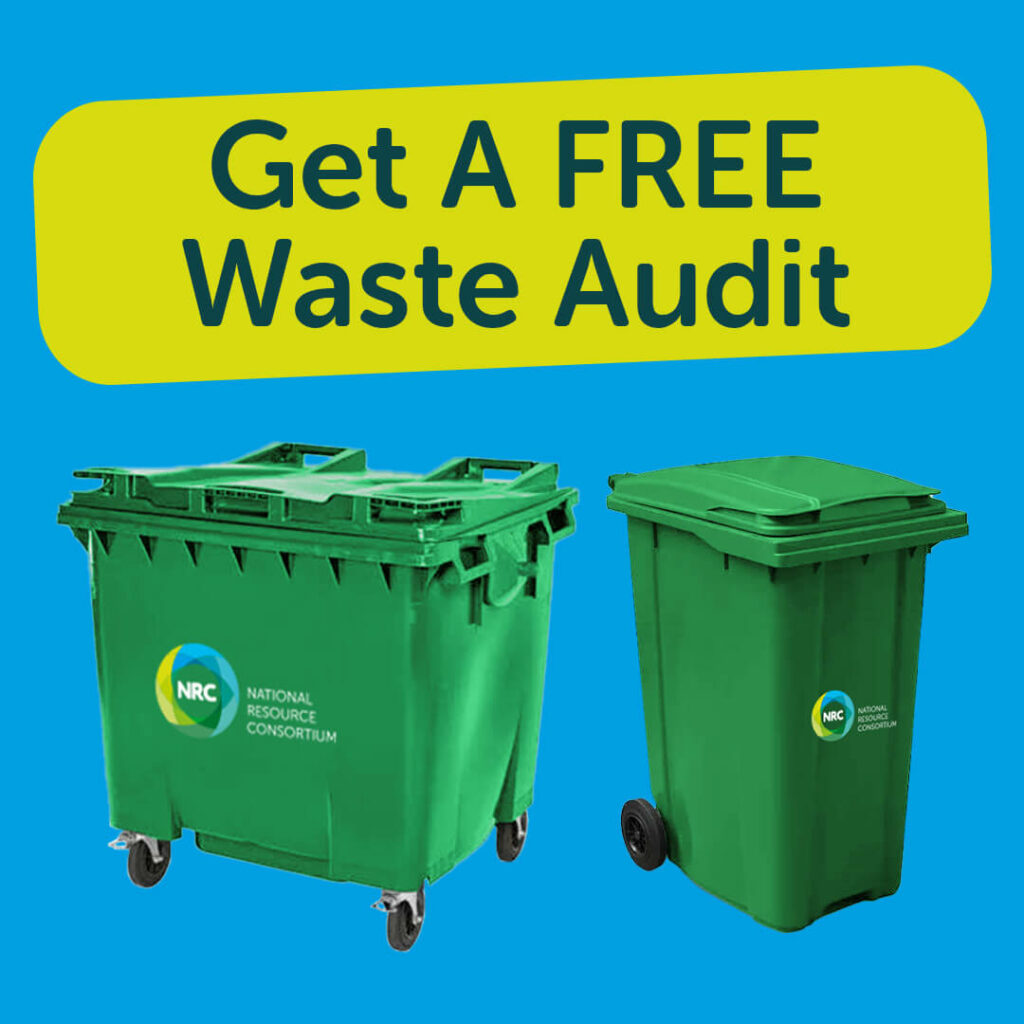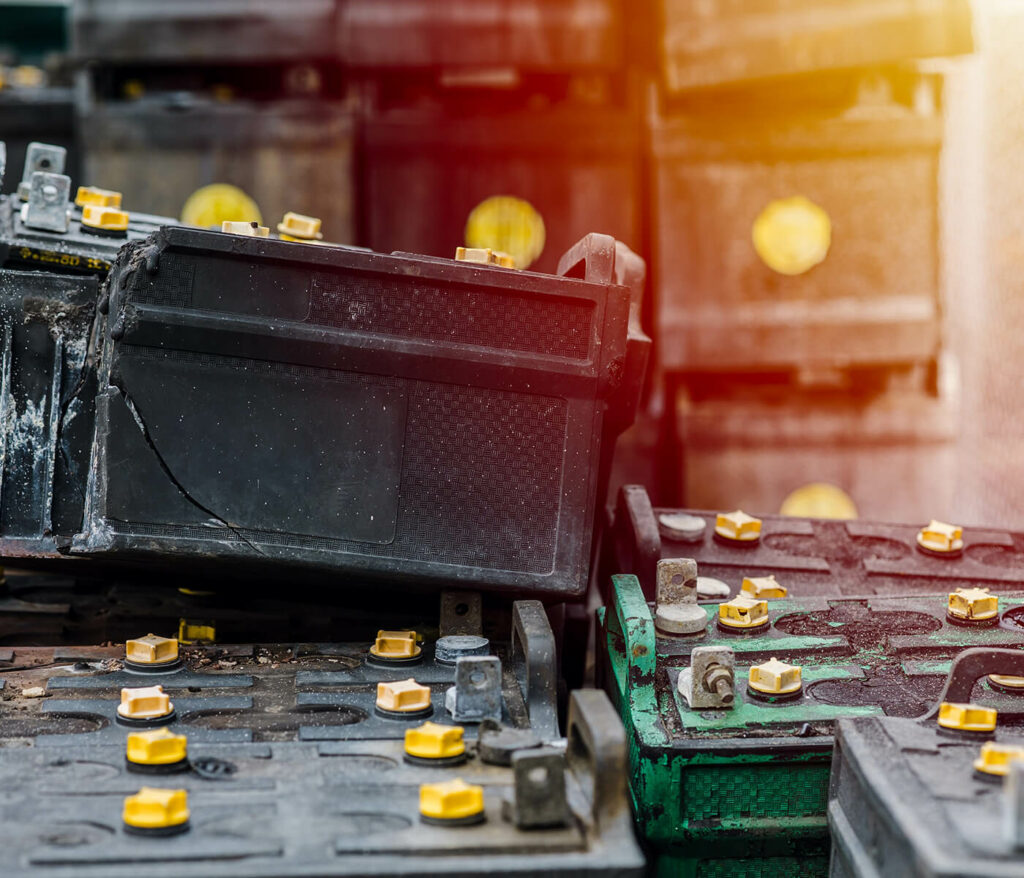May 9th, 2024

Printer inkjet cartridges are a necessary part of business, home and school life. Yet, when that ink cartridge runs its course, many are left contemplating the best eco-friendly disposal method. It’s a valid concern. Proper cartridge disposal isn’t just about decluttering—it’s about our environmental footprint.
At NRC, we’re committed to providing businesses with clear, sustainable practices. That’s why we’ve pulled together all the information you need to know about how to responsibly dispose of printer cartridges. With sustainable choices, we can make sure every ink cartridge serves our business needs and the planet’s well-being. Let’s get into it.
What are inkjet cartridges made from?
Printer inkjet cartridges, a staple in many offices and homes, are more intricate than they may first appear. Designed for efficiency and precision, their construction involves multiple materials.
Plastic casing
The primary material used in most ink cartridges is plastic. The casing is the cartridge’s main body and is typically made of a combination of polystyrene, polypropylene or similar materials.
These plastics give printer cartridges their robust and durable structure, ensuring they can withstand the pressures of printing.
Ink reservoir
Located inside the plastic casing, the ink reservoir is where the liquid ink is stored. Depending on the design and brand, there may be separate reservoirs for different ink colours. This part is also typically made of plastic.
Additional parts
Many cartridges also contain metal components, such as the electronic chip that communicated with the printer. They can even have foam to help distribute the ink evenly.
Can you recycle printer inkjet cartridges?
The short answer is that yes, you can recycle printer inkjet cartridges, but not in the normal way. The recycling process involves special facilities that break them down into their component parts, so that each material can be recycled separately.
Whatever you do, don’t put inkjet cartridges into your general waste. Even empty cartridges can contain leftover ink and other chemicals that can be detrimental to the environment. By choosing to recycle, we stop these harmful substances from entering landfill and seeping into the ground.
Where can you recycle printer cartridges?
One straightforward way to recycle your ink cartridges is to send them back to the manufacturer. In an effort to be environmentally conscious, most manufacturers have initiated recycling schemes that allow consumers to return used cartridges at no cost.
Sometimes, you can recycle ink cartridges that are clean, dry and empty alongside your normal plastic recycling. Make sure you double check your local guidelines before you do this though.
If you’re looking for a holistic waste management solution for your business, including inkjet recycling, look no further than NRC. With nationwide coverage, we can offer you a streamlined waste disposal service for all your business recycling needs. Get in touch with our teams today for a free quote.
How are inkjet cartridges recycled?
Ink cartridges are made of multiple components, making the process of recycling them a little tricky. This includes:
- Breaking down: When cartridges are sent for recycling, they are broken down into their separate materials.
- Cleaning: Each piece is then thoroughly cleaned to remove any leftover, harmful ink.
- Repurposing: The materials are then processed and reused, with plastics being melted and moulded into new products and metals being extracted for reuse.
Why is it important to dispose of ink cartridges properly?
Whether you’re printing family photos or employee contracts, it’s important to dispose of ink cartridges responsibly. Those empty cartridges can seem like easy pieces of rubbish to just chuck in the bin.
But, when casually thrown into landfills, these cartridges become persistent environmental hazards, as they can release harmful chemicals from leftover ink.
Do you want to make responsible choices for your business waste? Get in touch with NRC today. Whether it’s ink cartridges, other recyclables or general waste disposal, we have the skills and infrastructure needed to manage it all.





